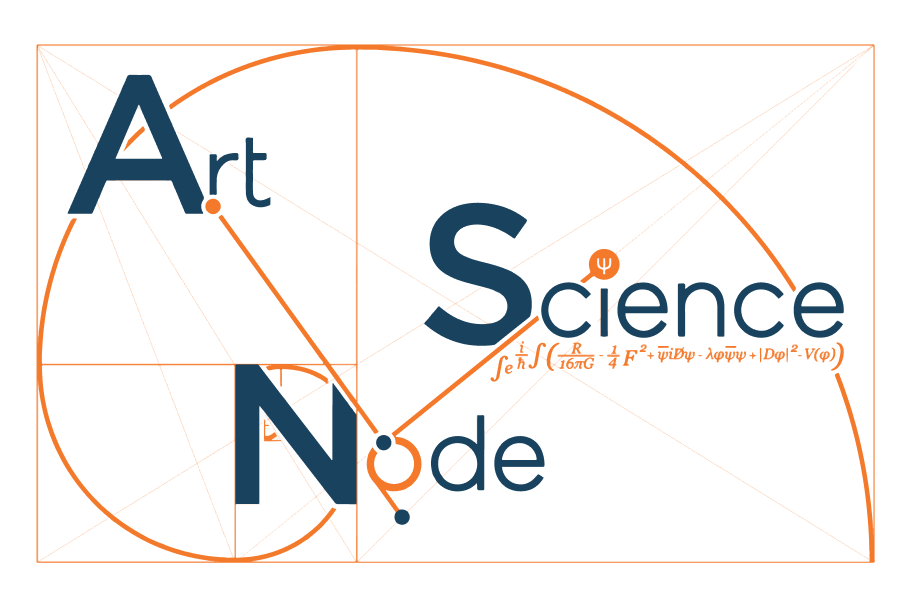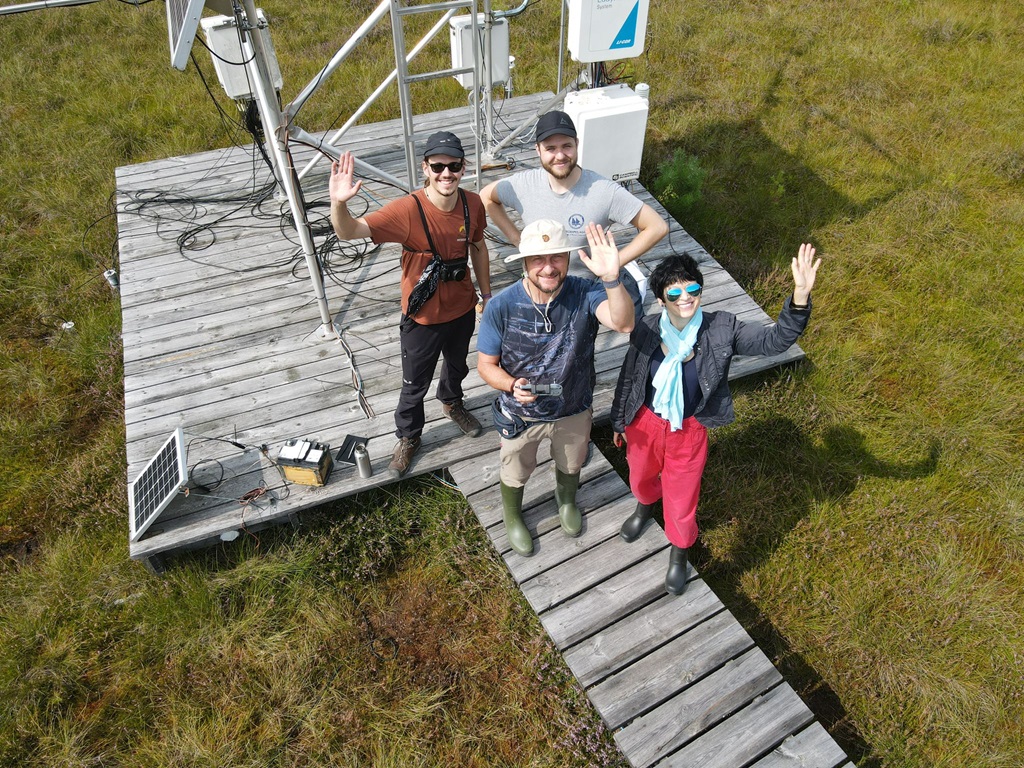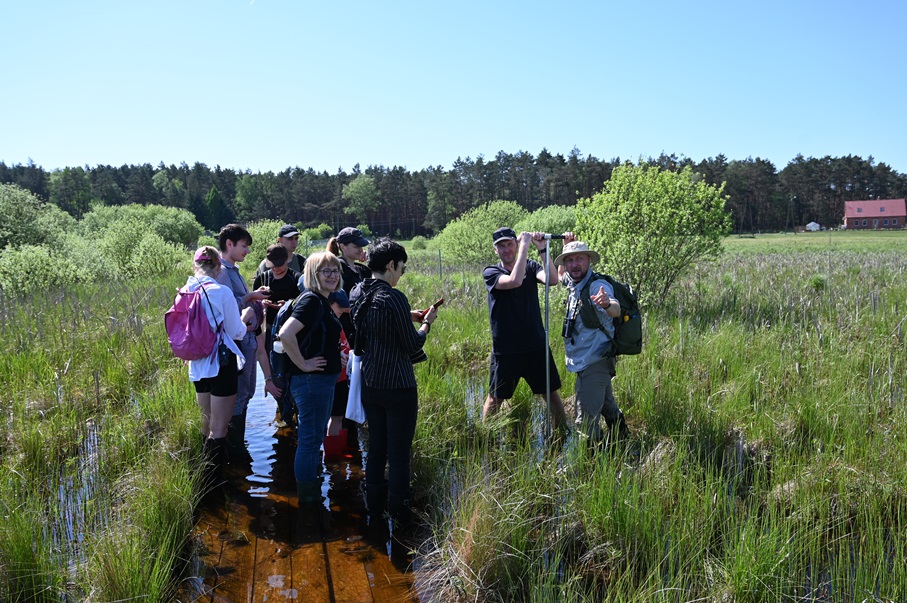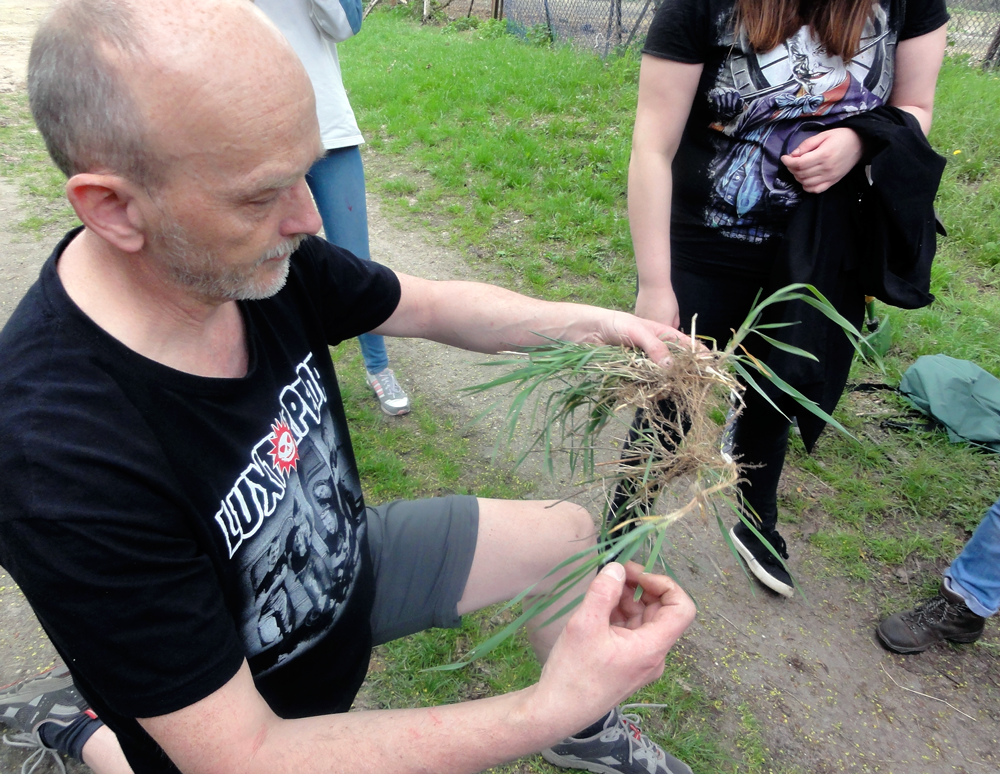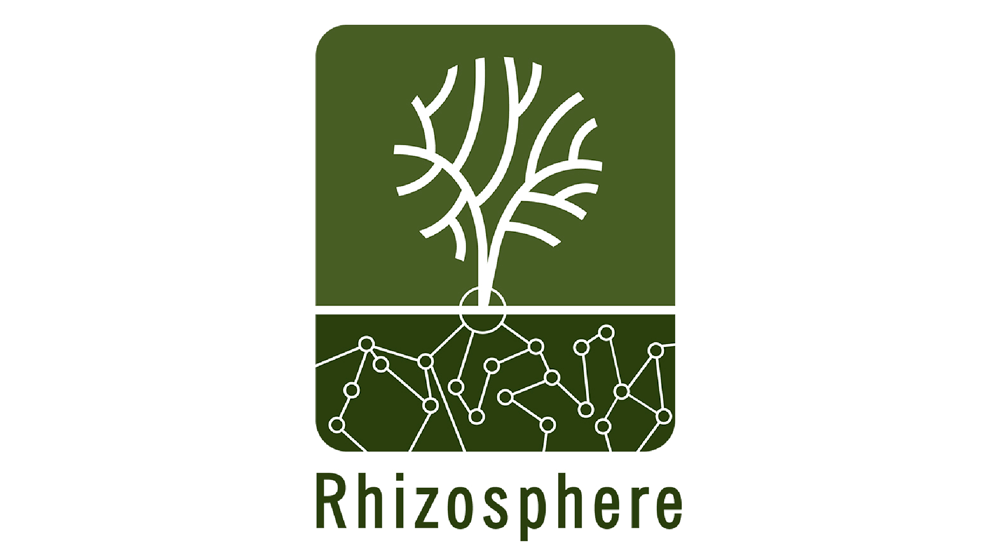
It is best to get inspiration from the Great Network of Small Worlds in direct contact with it.
RHIZOSPHERE FIELDWORKS
FIELDWORK: BAGNO KUSOWO 2024
During the summer of 2024 (19 August), we went with Prof. Mariusz Lamentowicz to the research base of the ReVersal project in the nature reserve “Bagno Kusowo” – a peat bog reserve established in 2005.
It is probably the best preserved large dome-shaped peat bog of the Baltic type in Poland. Overgrown with peat mosses and bog forest, the peat layer reaches 12 meters thick. The reserve is located in the protected landscape area “Jeziora Szczecineckie”, Special Area of Protection (SAC) Natura 2000 “Jeziora Szczecineckie” (PLH 320009).
In May, we went for fieldwork at the research base at the peatbog in Rzeciń. It is a unique area of 236,4 ha, protected by Nature 2000It is located in the western part of Greater Poland in a depression between the dunes of the Notecka Forest, between the Warta and Noteć rivers, and includes Lake Rzecińskie with an adjacent extensive transitional peat bog, meadows, rushes and willow thickets.
The first fieldwork prepared and led by prof. Marlena Lembicz and prof. Władysław Polcyn together with students of the Faculty of Biology of UAM, organized especially for students of the Studio for Transdisciplinary Projects and Research, took place in the research area of the Faculty of Biology of the Adam Mickiewicz University in Radojewo in April of 2018. Late spring is a particularly intense growing season for the lower parts of the forest, before the leaves of the trees will limit the inflow of sunlight. Joint workshops allowed to see the diversity of phenomena that elude the layman’s eyes and stimulated reflection on the consequences of the green blidness, which is a reapidly progressing process among the urban society.
In April 2019 a fieldwork at the Geobotanical Station of the University of Warsaw in Białowieża took place. It was organized by prof. Marlena Lembicz in cooperation with the station’s director, dr Bogdan Jaroszewicz. Experiencing the biological, historical and cultural significance of the ancient forest had a significant impact on the awareness and imagination of all participants. It is a unique place, where the cycle of life and death takes on another dimension, where what seems dead is in fact a lively link in a larger dynamic system. The multi-sensory experience of the forest environment, enriched with scientific lectures and open discussions, allowed for a deeper insight into the complexity and scale of ecological problems and challenges.
In October 2021 fieldwork at Morasko Meteorite Nature Reserve took place. Prof. Władysław Polcyn prepared it for students of the Studio for Transdisciplinary Projects and Research UAP. Morasko Reserve, located on the outskirts of Poznan is an extraordinary place that contains seven meteor crates created by the collapse of a meteorite 5000 years ago. The reserve is adjacent to the city from one site to the main municipal waste landfill on the other and to the military training ground. We named our workshop: “ Morasko Reserve – an island in the ocean of Anthropocene.” With the subtitle “An organism”
In October 2023, we delved again into the intersection of urban development and nature during an immersive workshop at the Morasko Reserve, focusing on the fascinating world of fungi networks. During our workshop, related to the subject “Smart City – fungi”, we explored the inherent wisdom embedded in the natural world, emphasizing the importance of embracing and learning from nature’s intelligence in shaping our cities for harmonious coexistence.
